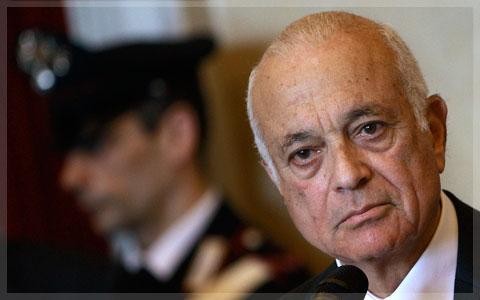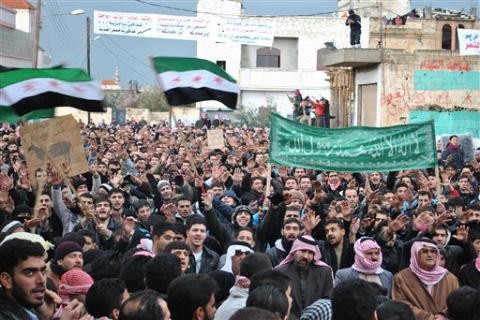Behind the AL’s decision to halt its observer mission in Syria
(VOVWorld)-The Arab League decided last Saturday to halt its observer mission in Syria due to escalating violence. The decision aroused public concern about its reasons.

Arab League President Al Nabil Eralaby. Photo: Internet
|
Under an agreement with Syria on ending the conflict in Syria, the Arab League last month sent a mission of 163 observers to Syria and this figure was expected to rise to 300. However, last week the Gulf Cooperation Council unilaterally withdrew its observers from Syria and last Saturday, the AL decided to halt its mission to ensure the safety of its observers in view of increasing violence in recent days. This was a surprise decision made just days after the Syrian government extended the AL mission for another month. Russian Foreign Minister Sergei Lavrov said Russia would like to know why the AL is treating such a useful instrument in this way and added that he would support an increased number of observers. Lavrov said he is surprised that after a decision was taken on prolonging the observers' mission for another month, some countries, particularly Persian Gulf countries, recalled their observers from the mission. Lavrov said he does not agree with those Western countries who say the mission is pointless and that it is impossible to hold a dialogue with Syrian President Bashar al-Assad's regime. Lavrov called these statements very irresponsible because trying to sabotage a chance to calm the situation is absolutely unforgivable. Mr. Lavrov’s comments suggest that the the AL’s decision is due to a split within the AL and that the mission is not part of the western countries’ scenario to overthrow the Damascus government.
 |
Protest against President Assad in Deir Baghlaba on January 27- Source: Internet
|
Since its establishment in 1945, the Arab League has always had problems of internal splits and stagnancy due to national interest conflicts. When the US launched a war in Iraq years ago, the AL responded in many different ways. Some members opposed the war while others agreed to provide military bases for the US. Meanwhile, in regard to Libya, the Arab league for the first time, gave a green light to set up a no fly zone there, a decision that has given the group a new image. But, in dealing with the problems in Syria, AL’s intervention has caused dissension within the bloc and between the West and Russia and China. After the AL voted to suspend Syria’s membership on November 12, 2011 and impose sanctions on the country, some AL members including Lebanon, Jordan and Iraq decided to demur to protect their political and economic ties with Damascus. Algeria said it opposed any intervention in Syria. Russia and China have different views from the West on the AL’s observer mission in Syria. Russia and China have supported the mission considering it a promising way to peacefully resolve Syria’s conflict, while the US, France and their allies have considered the mission a way to prolong President Bashar Al Assad’s power and are waiting for stronger action by the UN Security Council. The AL’s plans for a smooth transfer of power from President Assad to his Vice President have never been supported by the west. Failing to satisfy both the opposition party and the Damascus government, the AL decided to halt its mission, citing as a reason for the escalating violence. This decision, made just before Tuesday’s UN Security Council meeting, has put more pressure on the international community and has created a reason for the West to intervene.
Đoàn Thị Trung